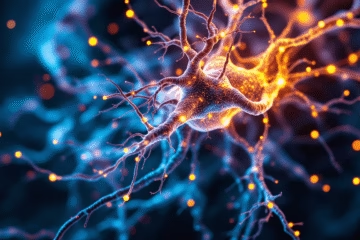In recent years, mindfulness has gained prominence in various fields, from mental health to workplace performance. But what does science say about this practice? In this article, we will examine the scientific evidence supporting the science behind mindfulness, its benefits, the impact on the brain, and the findings of recent studies.
Explore COURSES
New Skills Academy Mindfulness Courses 65% OFF
Unlock your inner calm with New Skills Academy’s mindfulness courses designed for all experience levels. Discover evidence-based techniques to reduce stress, boost focus, and enhance your overall well-being.
The Science Behind Mindfulness
Unparalleled online learning experiences, New Skills Academy!
What is Mindfulness?
Mindfulness is the practice of being present in the moment, observing thoughts, emotions, and bodily sensations without judgment. This technique has its roots in Buddhist meditation but has been widely adapted and studied in the West, especially over the last few decades. Mindfulness practice involves methods such as meditation, conscious breathing, and being mindful in daily activities.
Unparalleled online learning experiences, New Skills Academy!
The Benefits of Mindfulness: What Research Reveals
1. Stress Reduction
One of the most documented benefits of mindfulness is stress reduction. A study published in the journal “Health Psychology” demonstrated that individuals who practised mindfulness had significantly lower levels of cortisol, the stress hormone. Regular mindfulness practice helps regulate the body’s response to stress, promoting a sense of calm and relaxation.
2. Improvement in Mental Health
Research shows that mindfulness can be an effective tool in treating mental disorders such as depression and anxiety. A meta-analysis published in the “Journal of Clinical Psychology” concluded that mindfulness programmes, such as Mindfulness-Based Cognitive Therapy (MBCT), are effective in reducing symptoms of depression and preventing relapse.
3. Increased Concentration and Focus
Studies also indicate that mindfulness practice can improve concentration. Research published in the journal “Cognitive, Affective, & Behavioural Neuroscience” revealed that individuals who regularly practised mindfulness showed significant improvements in tasks requiring sustained attention. This suggests that the practice can help train the brain to focus better on daily activities.
4. Emotional Regulation
Mindfulness is also associated with improved emotional regulation. A study published in “Emotion” demonstrated that mindfulness practice can help people cope better with difficult emotions such as anger and sadness. Participants who practised mindfulness reported a greater ability to observe their emotions without being overwhelmed by them, resulting in more balanced reactions.
5. Improvement in Sleep Quality
The relationship between mindfulness and sleep quality has been the subject of increasing research. A study published in “JAMA Internal Medicine” revealed that mindfulness practice can improve sleep quality and reduce symptoms of insomnia. Participants who engaged in a mindfulness programme reported fewer difficulties falling asleep and better overall sleep quality.
Mindfulness Courses by the Centre of Excellence
Discover the power of mindfulness with our Diploma courses offered by the Centre of Excellence. These carefully structured programs are designed to guide you through the fundamentals of mindfulness, helping you cultivate a balanced, focused, and fulfilling life.
How Does Mindfulness Affect the Brain?
Neuroscience has also been examining the effects of mindfulness on the brain. Brain imaging studies, such as functional magnetic resonance imaging (fMRI), have shown that regular mindfulness practice can alter the structure and function of the brain. Here are some key findings:
1. Increase in Grey Matter
Research indicates that regular mindfulness practice is associated with an increase in grey matter in areas of the brain related to memory, empathy, and emotional self-regulation. A study from Harvard University revealed that just eight weeks of mindfulness practice could lead to significant changes in brain structure.
2. Reduction in Amygdala Activity
The amygdala is a part of the brain that plays a crucial role in the stress response and emotions. Studies show that mindfulness practice can reduce amygdala activity, resulting in a more balanced emotional response and less reactivity to stress.
3. Strengthening of Neural Connections
Mindfulness practice can also strengthen neural connections in areas of the brain responsible for attention and emotional regulation. This means that over time, mindfulness practice can make it easier for people to maintain calm and focus, even in challenging situations.
Unparalleled online learning experiences, New Skills Academy!
How to Start Practising Mindfulness?
If you’re interested in experiencing the benefits of mindfulness, here are some tips to get started:
1. Guided Meditation: There are many apps and online videos that offer guided meditations. Start with short sessions, from 5 to 10 minutes, and gradually increase the time.
2. Breathing Exercises: Set aside a few minutes each day to focus on your breath. Inhale deeply through your nose, hold for a few seconds, and exhale slowly through your mouth.
3. Mindfulness in Daily Activities: Try to incorporate mindfulness into everyday activities, such as eating, walking, or doing the dishes. Focus on the sensations and experiences of the moment.
4. Practice Regularly: Consistency is key. Try to practise mindfulness daily, even if only for a short time.
The science behind mindfulness is fascinating and reveals the many benefits this practice can offer. From stress reduction to improved mental health and sleep quality, studies show that mindfulness can have a significant positive impact on people’s lives. If you haven’t tried it yet, consider incorporating mindfulness practice into your routine and discover how it can transform your life.
Body, Mind, And Soul For A Fulfilled Life!







